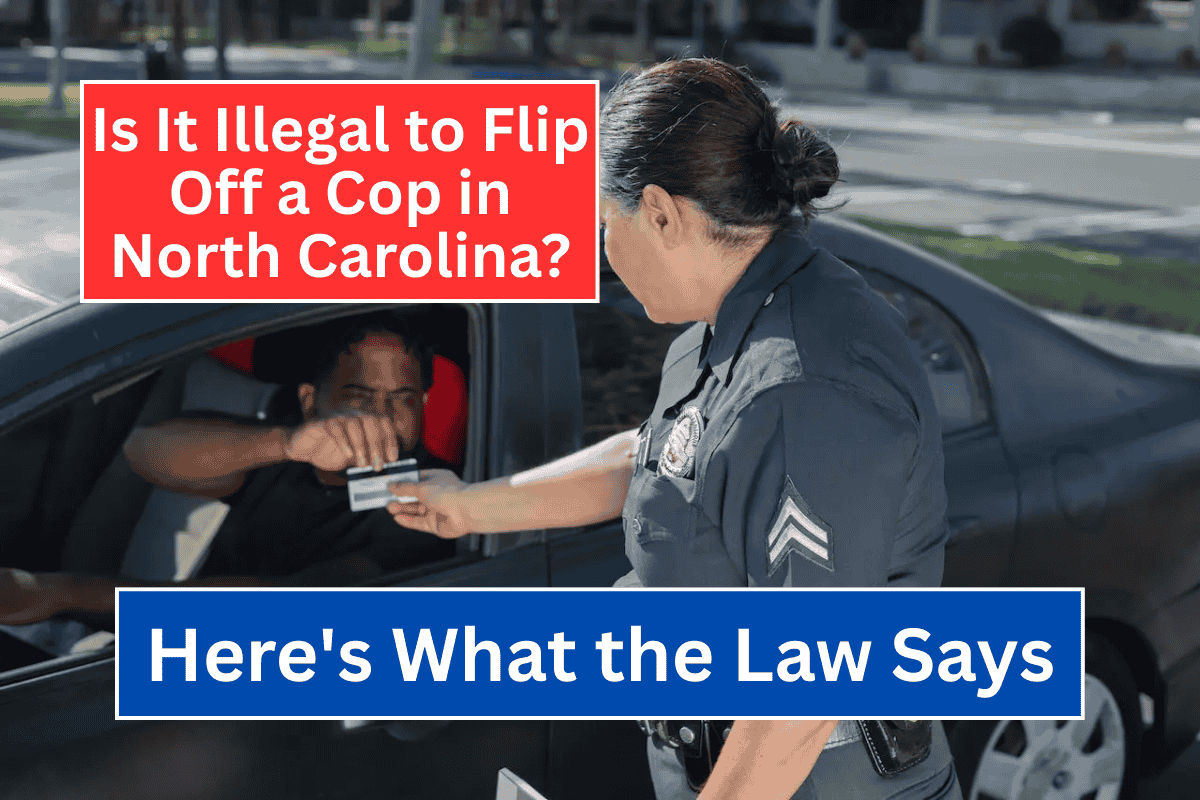Flipping off a police officer while driving may seem like a bold statement, but in North Carolina, it’s not enough to get you pulled over or arrested.
This issue came to light in 2017 when a North Carolina State Highway Patrol trooper, Paul Stevens, pulled over a vehicle after observing a passenger, Shawn Patrick Ellis, making an obscene gesture at him.
The Incident: What Happened in Stanly County?
On January 9, 2017, Trooper Stevens was assisting a stranded motorist in Stanly County with his lights activated. As he was on scene, Stevens noticed Ellis, a passenger in a passing vehicle, waving his arm out the window and making an up-and-down motion with his middle finger.
Believing this gesture to be disorderly conduct, Stevens followed the car for about half a mile before pulling it over, despite the driver not breaking any traffic laws.
Upon stopping the car, both the driver and Ellis refused to show their identification. The driver later complied, but Ellis continued to resist. Stevens then took Ellis to his patrol vehicle and cited him for resisting, delaying, or obstructing an officer.
Ellis eventually faced trial for obstruction and filed a motion to suppress evidence, arguing that there was no reasonable suspicion to justify the stop in the first place.
Court Rulings on the Incident
Initially, the trial court denied Ellis’s motion, and the matter was taken to the North Carolina Court of Appeals. In August 2019, the appellate court ruled that Stevens had “reasonable suspicion” to make the stop based on the gesture and that it was not obvious that Ellis was simply exercising his right to free speech.
The court also upheld that Stevens had justification for further detaining Ellis because of his refusal to identify himself.
However, Judge John Arrowood dissented, arguing that Ellis’ gesture was offensive but still protected by the First Amendment. Arrowood pointed out that Stevens was the only one providing testimony about the incident and suggested that the stop lacked reasonable justification.
North Carolina Supreme Court’s Ruling
In a surprising turn of events, the North Carolina Supreme Court reversed the appellate court’s decision, concluding that Stevens did not have sufficient reason to stop Ellis.
The court explained that merely flipping the bird, even if directed at a police officer, was not enough to establish “reasonable suspicion” of disorderly conduct.
They reasoned that the fact Stevens was unsure whether the gesture was aimed at another vehicle did not provide reasonable suspicion, and the gesture alone wasn’t likely to cause a breach of the peace. The court also clarified that the First Amendment issue wasn’t addressed because there was no valid reason for the stop.
What Does This Mean for Freedom of Expression?
This case ultimately shows that flipping off a police officer, or engaging in similar gestures, is generally considered protected free speech under the U.S. Constitution, as long as it doesn’t lead to illegal behavior or cause immediate danger.
Courts have consistently ruled that certain acts of free expression—such as flashing headlights to warn other drivers or playing music that could be deemed offensive—cannot be grounds for pulling over a driver unless there is a legitimate legal reason.
Flipping Off a Cop Is Not Illegal—Unless It Leads to Other Violations
In North Carolina, flipping off a cop is not illegal in itself. While an officer may feel offended, the law protects free expression under the First Amendment unless it leads to illegal actions or a public safety threat. So, while it’s risky to antagonize law enforcement, doing so alone won’t justify a traffic stop unless other legal criteria are met.












